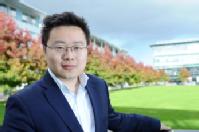WMG News
Universities' global connectivity via the air transport network gives significant insight to global rankings
 The demand for higher education is on the rise and so is the cost of education. When judging the quality of a university, ranking tables provide good indication of university quality. But when many universities fluctuate in those rankings from year to year, if you a prospective student or researcher, how should you choose the right university? Some base their decisions on employability figures, others consider factors like presence of inspirational academics, academic infrastructure, and diversity, but new research shows that universities in close proximity to large transportation hubs are set to succeed.
The demand for higher education is on the rise and so is the cost of education. When judging the quality of a university, ranking tables provide good indication of university quality. But when many universities fluctuate in those rankings from year to year, if you a prospective student or researcher, how should you choose the right university? Some base their decisions on employability figures, others consider factors like presence of inspirational academics, academic infrastructure, and diversity, but new research shows that universities in close proximity to large transportation hubs are set to succeed.
These are the important new findings from an interdisciplinary team of researchers from University of Warwick, and the Alan Turing Institute, Mr Marco Del Vecchio and Professor Ganna Pogrebna have recently appeared in a new article published in the Royal Society Open Science.
Dr Guo, Mr Del Vecchio and Professor Pogrebna look at the relation between universities’ performance (measured by the ARWU university ranking) and their global connectivity via the air transport network by analysing the data on all global airports and flights over a period from 2005 to 2016. They show that universities well-connected to global transportation hubs tend to grow in rankings faster than those of a similar ranking positioned in less connected parts. Interestingly, the key metric is proximity to airport hubs that have more direct flights to other hubs than the number of flights or the number of connections alone. For each university in the ranking, researchers calculate the university’s global connectivity coefficient and find that this coefficient helps to explain differences in the ranking.
For example, the average global connectivity coefficient from 2005 to 2016 for the University of Oxford is equal to 0.007 and its average global rank is 9.7 over the same time period; while the average global connectivity of Cambridge over 12 years is 0.05 and its average ARWU rank is 4.2. Researchers also rule out economic development as a confounding factor, showing a unique relationship between connectivity and university ranking. The main lesson we learn from this research is that universities of the future should be placed strategically on the crossover of many global air traffic ways in order to ensure their long-term success.
Dr Guo, Associate Professor in the School of Engineering at the University of Warwick and a Turing Fellow said:
“This study shows that face-to-face international interactions underpin university excellence. Whilst existing universities cannot change their location and are not likely to significantly influence airline operating patterns, it is possible to incentivize and subsidize international collaboration. Whilst the research outcome is intuitive, we are able to quantify the relationship between connectivity and ranking, providing the first step in the evidence that can lead to informing university and regional development policy.”
Professor Ganna Pogrebna, who carried out the research while at WMG at the University of Warwick but is now at Birmingham Business School, said:
“Over 32% of student-age population worldwide is enrolled in universities and we anticipate that the number of students will reach 262 million by 2025. Much of this growth will be due to demand from Asian market (e.g., India and China). So, it is clear that we will need to build more universities or open more satellites of existing universities to match the growing demand. This study shows that when making plans to build a new university, policy makers need to consider how it would fit into the overall transportation infrastructure of the area. Specifically, successful universities of the future need to be well-connected via the global air network.”
______________________
Contacts:
Weisi Guo
Associate Professor, University of Warwick
and Head of Data Embedded Networks (DEN) Lab
Alan Turing Institute - Turing Fellow and Group Leader
Email: weisi.guo@warwick.ac.uk
https://www2.warwick.ac.uk/fac/sci/eng/staff/wg/
Marco Del Vechio
Research Affiliate in WMG, University of Warwick;
Email: marco.c4d@gmail.com
https://www.linkedin.com/in/marcodelvecchioprofile/?ppe=1
Ganna Pogrebna
Associate Fellow, WMG, University of Warwick;
Alan Turing Institute - Turing Fellow
Professor of Behavioural Science Birmingham Business School;
Email: g.pogrebna@bham.ac.uk
http://www.gannapogrebna.com/
or
Peter Dunn, Director of Press and Media Relations
University of Warwick
Tel UK 024 76523708 office
07767 655860 mobile
Tel Overseas:
+44 (0)24 76523708 office
+44 (0)7767 655860 mobile/cell
Email p.j.dunn@warwick.ac.uk
